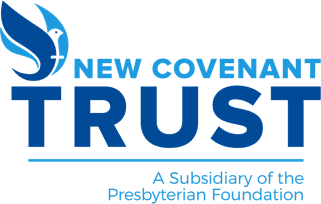
This time of year is often called the Season of Giving, and not just because of the lovingly wrapped presents we give to family and friends at Christmas. In fact, 37% of all charitable giving occurs in the fourth quarter, with December accounting for over 20% of total donations for the year.
Economic and demographic factors could impact charitable giving as we approach the end of 2022. As a result, donors may be feeling less financially secure, which means they may be more selective about how much they give, and where.
As donors think about ways to give back to their churches and other causes they care about this month — and as charities prepare to accept those donations — there are some important considerations that could maximize not only the charitable dollars given, but the impact of those donations. It’s important for nonprofits to tell their stories of impact to help ensure donors will prioritize them as their charity of choice.
Charities will also need to be prepared to accept gifts other than cash — many donors this year may not be able to give money out of their pockets, but may have other assets to donate that won’t impact their bank account.
New Covenant Trust Company and the Presbyterian Church (U.S.A.) Foundation presented a webinar on “Year End Giving Made Simple” that offered some tips to help individuals and congregations better navigate end of the year donations. In case you missed it, we’re pleased to share some of the highlights below. To view the webinar in its entirety, click here.
Tip 1: Appreciated Securities
Most churches encourage donors to give by passing the collection plate or making a gift online. These gifts are made from a donor’s income — their cash on hand. Rising inflation has caused income purchasing power to shrink, which has many donors cutting back on the amount they can give.
Gifts of appreciated securities are made from stocks, fixed income, and assets other than cash. One benefit of this type of gift is that donors can consider their total financial picture and not just their income. Because donors may not be taxed on any capital gains and might be able to realize a charitable tax deduction of the market value of the securities, this could result in a larger gift to charity. In fact, appreciated securities are on average 100 times larger than cash gifts.
It is important to note that accepting appreciated securities is more involved and takes more time than cash gifts. Donors who are considering this type of gift should initiate it by mid-December at the latest. The gift must be made in-kind for the donor to realize the maximum potential tax benefits. If your charity does not have the ability to receive securities, NCTC and the Presbyterian Foundation can help.
Tip 2: Donor Advised Funds
Donor Advised Funds (DAFs) are the fastest growing charitable giving vehicle. Much of this is due to the flexibility that DAFs provide to donors. They allow donors to establish and fund a DAF by making irrevocable, tax-deductible contributions to the charitable sponsor. Donors retain advisory privileges and may recommend investments and grants from those funds to other charitable organizations.
The flexibility of DAFs includes granting to multiple charities, and granting both income and principal. This allows donors to bundle contributions, which might provide tax benefits.
It’s important for churches and other charities to make their donors aware that they accept Donor-Advised Fund grants — many people may not realize you are equipped to accepts these types of gifts. It is also important to note that the way charities acknowledge and thank donors for DAF grants is different than for direct cash gifts.
Tip 3: Qualified Charitable Distributions
Donors who have a Traditional Individual Retirement Account (IRA) are required to start taking required minimum distributions (RMDs) at age 72 ½. Because traditional IRAs are tax deferred, RMDs are treated as ordinary income. And ordinary income from a Traditional IRA is included in adjusted gross income.
A Qualified Charitable Distribution (QCD) is when a traditional IRA owner directs a distribution from the traditional IRA directly to a charity. The biggest benefit is that the QCD is excluded from the donor’s adjusted gross income. A lower adjusted gross income could prevent the phase out of certain deductions, and could reduce taxes on social security income, as well as possibly lower Medicare premiums. QCDs also satisfy any required minimum distributions from a Traditional IRA.
Charities should make sure their donors are aware of this gift type and that their charity is equipped to accept it. Similar to appreciated security gifts, QCDs take time. Let us know if we can help with the process.
Tip 4: Planned Giving
Interest in planned giving (often part of estate planning) is growing. More and more people are thinking about their legacy and how they want to be remembered — and making their wishes known in writing. This desire to make a lasting impact might lead a donor to leave a future gift to their favorite charities.
Planned gifts usually are the largest gifts a donor will ever make. The IRS data reflect that charitable bequests are three times larger than lifetime giving.
A great time to remind donors to consider a planned gift is when they make a regular contribution. A charity can encourage donors to make a planned gift in their gift acknowledgement letter. This is also a good time to share information about others who have supported the charity with a planned gift. Studies show donors are more likely to make planned gifts when they learn of their peers are doing the same.
The Bottom Line
Despite economic challenges and uncertainties, most of us still want to support charities that making the community and the world a better place. Churches and other nonprofits should make sure to tell their stories of impact in multiple ways, and in multiple places.
To maximize a gift, it is very important to determine the right gift asset and the right gift vehicle. This can be an involved process, and NCTC and the Presbyterian Foundation are here to help. Call us at 800-858-6127, Ext. 6.
We wish you a blessed Christmas, and a new year filled with health, peace, and joy.
